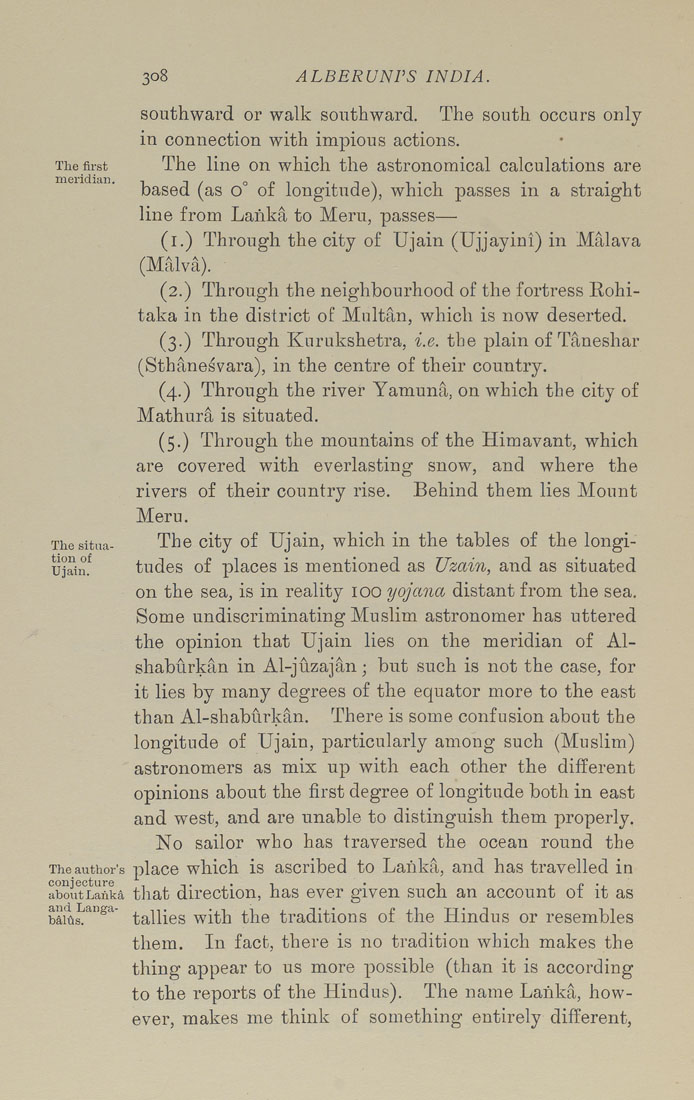Bīrūnī, Muḥammad ibn Aḥmad, Alberuni's India (v. 1)
(London : Kegan Paul, Trench, Trübner & Co., 1910.)
|
||
|
|
|
|
| Page 308 |

3o8 ALBERUNPS INDIA. southward or walk southward. The south occurs only in connection with impious actions. The first The line on which the astronomical calculations are meridian. -, -, , o o ^ --ini-i • -i based (as o of longitude), which passes m a straight line from Lahka to Meru, passes— (i.) Through the city of Ujain (Ujjayini) in Malava (Malva). (2.) Through the neighbourhood of the fortress Rohi- taka in the district of Multan, which is now deserted. (3.) Through Kurukshetra, i.e. the plain of Taneshar (Sthanesvara), in the centre of their country. (4.) Through the river Yamuna, on which the city of Mathura is situated. (5.) Through the mountains of the Himavant, which are covered with everlasting snow, and where the rivers of their country rise. Behind them lies Mount Meru. Thesitua- The city of Ujain, which in the tables of the longi- ujaim tudes of placcs is mentioned as JJzain, and as situated on the sea, is in reality 100 yojana distant from the sea. Some undiscriminating Muslim astronomer has uttered the opinion that Ujain lies on the meridian of Al- shabiirkan in Al-jiizaj^n; but such is not the case, for it lies by many degrees of the equator more to the east than Al-shabiirkan. There is some confusion about the longitude of Ujain, particularly among such (Muslim) astronomers as mix up with each other the different opinions about the first degree of longitude both in east and west, and are unable to distinguish them properly. No sailor who has traversed the ocean round the Theauthor's placc which is ascribcd to Lahka, and has travelled in aboiitLahka that direction, has ever given such an account of it as Mhis.'*"^'^ tallies with the traditions of the Hindus or resembles them. In fact, there is no tradition which makes the thing appear to us more possible (than it is according to the reports of the Hindus). The name Lahka, how¬ ever, makes me think of something entirely different. |
| Page 308 |







